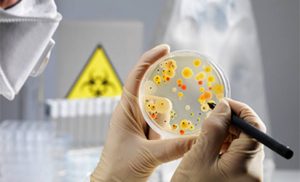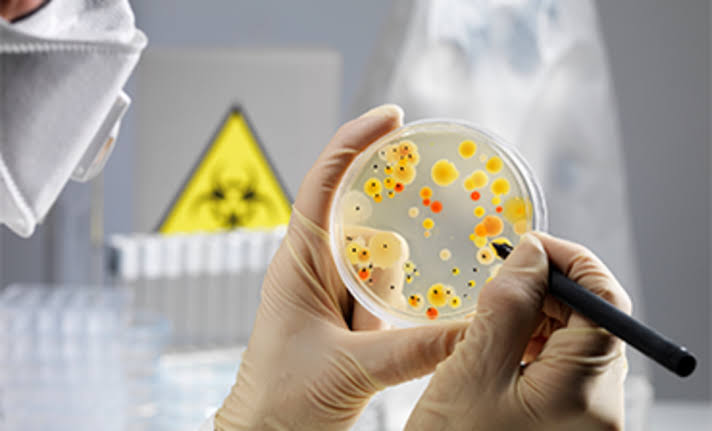Benefits of studying Microbiology in Nigeria…10 benefits of studying microbiology..
Microbiology is the study of microscopic organisms, such as bacteria, viruses, achaea, fungi and protozoa. This discipline includes fundamental research on the biochemistry, physiology, cell biology, ecology, evolution and clinical aspects of micro organisms including the host’s response to these agents. A graduate of Microbiology has an averagely wide array of career and job opportunities to pick from as their area of work is very specific. It is also good course to study if one is interested in detail and research. There also a lot of benefits attached to studying Microbiology in Nigeria.
Why study Biochemistry?
First off, it is averagely easy to get admission to study Microbiology in the universities of your choice compared to other courses such as Medicine and Pharmacy.
The UTME cut-off mark to study Microbiology in these universities is ‘200’ while each university has unique criteria for admission, you need at least five ‘credit’ passes in English, Mathematics, Physics, Chemistry and Biology in not more than ‘two sittings’ at O’level to study Microbiology. While for your UTME, your subject combination should be Use of English (Compulsory), Physics, Chemistry and Biology.
Another advantage of studying Microbiology in Nigeria is that you have the opportunity to further your studies in any area of your choice under Microbiology. Some of these areas include;
👉Pharmaceutical Microbiology; This involves the study of synthetic chemotherapeutic agents and antibiotics, the production and synthesis of antibiotics and antimicrobial agents as well as the quality control of pharmaceutical products. Drugs of microbial origin and separation techniques in Pharmacy are also studied.
👉Food Microbiology; This involves the study of the roles and significance of microorganisms in food, intrinsic and extrinsic parameters of food that affect microbial growth and the Indices of food sanitary growth and food microbiological standards.

👉Immunology and Immunochemistry; Advanced instruction on immunology, antigens, antigenic determinants, cellular immune response, genetics of response to specified antigenic stimulation. Immunoglobulins, immune-pathology, autopathology, autoimmunity, Histocompatibility genes and gene products.
👉Clinical Microbiology and Infectious Diseases; Advanced instruction on Infectious diseases, immunology, clinical syndromes an infections, emerging infectious diseases, molecular diagnostics of infections and intensive laboratory practice in microbiology, virology and serology.
As well as Genetic engineering, Environmental Microbiology, Microbial Physiology, Infection Biology, Public Health, Industrial Microbiology, Medical Virology, Medical Bacteriology, Respiratory Science, Microbial Genetics, Aquatic Microbiology, Epidemiology.
Another benefit of studying Microbiology in Nigeria is the wide range of job and employment opportunities available for graduates of Microbiology as well as the salaries attached to such places of work. Some of the places Microbiologists can work include;
MEDICAL INSTITUTIONS;
In Medical institutions such as Pharmaceutical companies, Microbiologists run tests and determine the effects of drugs and chemicals made on cells and microscopic organisms. In hospitals and laboratories, they carry out analysis on body fluids like blood, urine and stool to detect parasitic microorganisms and help in the determination of correct diagnosis. They work closely with Medical lab scientists. Microbiologists who work in government owned medical institutions earn about 80,000-120,000 while their collegues in private institutions earn about 50,000-80,000 per month.
OIL COMPANIES;
Microbiologists play their part in oil detection and exploration by analyzing the species and quantity of microorganisms at certain depths and locations. They are also employed to genetically engineer microorganism which can reduce pollution by breaking down crude oil from spills into harmless substances. Microbiologists employed in oil companies usually earn about 200,000-400,000 per month with significant increases with time and experience.
As well as Food Industry ( Micobiologist employed in FCMG’s earn about 45,000-200,000 depending on company, job description, and location), Research Institutions, Pharmaceutical companies, NAFDAC, SON and other quality control agencies, Education sector, and Business organizations.
Shyllon Olayinka Enoch, Undergraduate student of Biochemistry at Obafemi Awolowo University.
Twitter; @blackpeggy103
Image Credit: ECDC – European Union
























